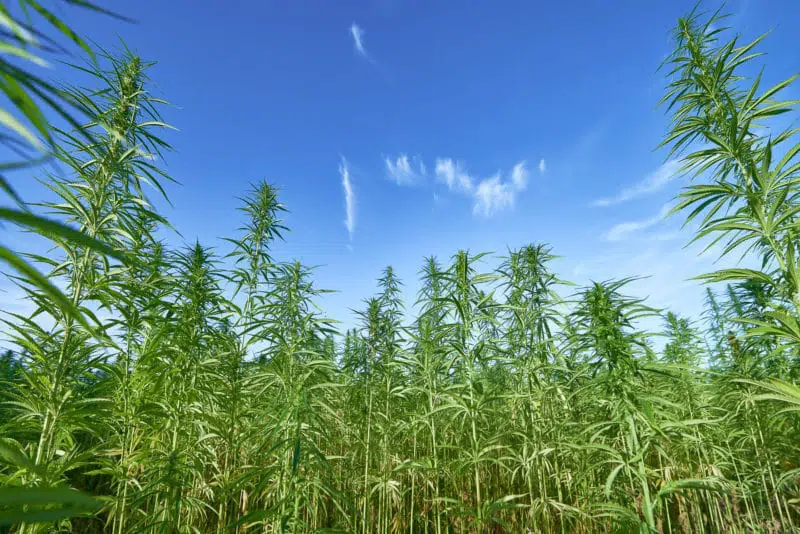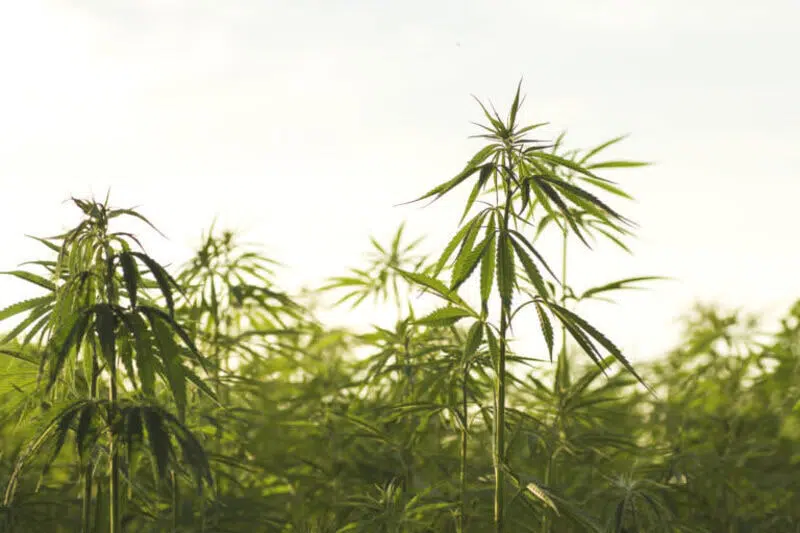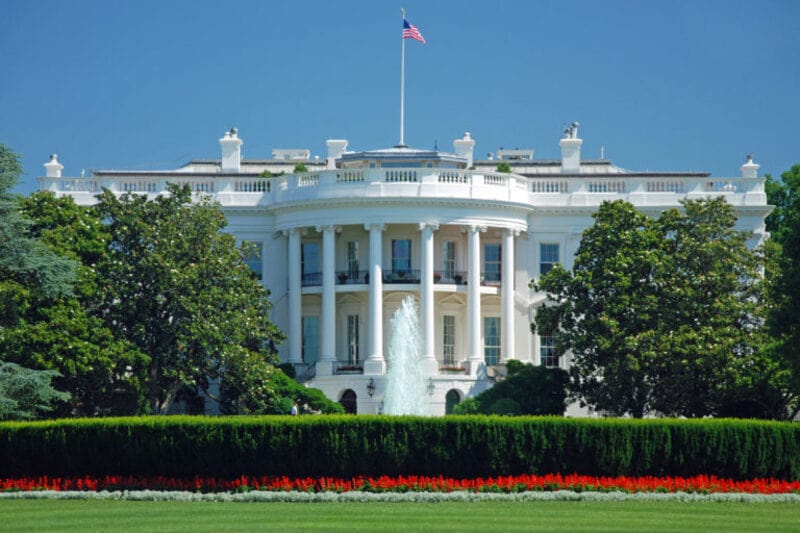-
- Market Research
- |
- CBD Near Me
- |
- Giveaways
- |
- Newsletter
- |
- Contact
- |
- Advertise
- |

Table of Contents
Here are the biggest CBD news stories for the week of July 26:
- The FDA has sent a warning letter about unsubstantiated CBD claims to Curaleaf, the most valuable cannabis company in the US
- John Isner and the CBD drink company DEFY co-founded by Terrell Davis have partnered as tennis’ first CBD endorsement
- A study has found new information on compounds in cannabis that are 30 times stronger than aspirin at killing pain
- North Carolina lawmakers are considering a ban on hemp flower due to law enforcement complaints
Table of Contents
- FDA Sends CBD Warning Letter to Curaleaf
- John Isner Partners With Defy as Tennis’ First CBD Endorsement
- Study Documents Production of Cannabis Compounds That Are Stronger Than Aspirin
- North Carolina May Ban Hemp Flower
FDA Sends CBD Warning Letter to Curaleaf
On Tuesday, it was announced that the FDA had sent a warning letter to Curaleaf for making unsubstantiated claims about its CBD products.
Curaleaf, which sells both CBD products made from hemp and THC products from marijuana, is the most valuable cannabis company in the US.
In its letter, the FDA identified Curaleaf’s lotion, patch, tincture, vape pen, and pet tincture as the culprits.
The agency showed examples of claims by Curaleaf on both its website and social media accounts that these products could treat pain, anxiety, and ADHD.
Curaleaf said that when they received the letter, they “immediately began an extensive review of its website and social media platforms to remove all statements that FDA identified as non-compliant.”
The FDA told the company it had to address these issues within 15 days of receiving the letter.
“Selling unapproved products with unsubstantiated therapeutic claims — such as claims that CBD products can treat serious diseases and conditions — can put patients and consumers at risk by leading them to put off important medical care,” acting FDA Commissioner Ned Sharpless said in a statement on Tuesday.
Fall Out and Response
As a result of the news, Curaleaf’s stock dropped by as much as 14 percent on Tuesday.
By the end of the day, it posted a total loss of 6 percent.
CVS, who had been selling products from Curaleaf since March, removed the products from their stores.
“Following the FDA’s warning letter to Curaleaf, we will be removing these items from our CBD offering,” said Mike DeAngelis, CVS’ Senior Director of Corporate Communications, in a statement. “At this time we have no plans to resume selling these products once they are removed from our stores.”
On Friday morning, Curaleaf announced that it had “addressed the issues that were raised in the letter regarding its CBD product marketing.”
The company removed its Curaleaf Hemp blog, third-party links, and deleted the health claims made on its website and social media accounts.
Curaleaf also claimed that some of the products the FDA mentioned in its letter had already been discontinued.
“Our industry needs, wants and appreciates the work the FDA is doing to ensure there is regulation and compliance in the CBD marketplace,” said Joseph Lusardi, CEO of Curaleaf, in the statement.
“We care deeply about our customers and making a difference in our industry. Curaleaf is committed to being an ethical and responsible company and working with the FDA to be a leader in our industry, setting the standards and guidelines to best service our customers and the communities we serve.”
John Isner Partners With Defy as Tennis’ First CBD Endorsement
John Isner, currently 14th in the ATP Singles ranking, has become the first professional tennis player to ink a CBD endorsement deal.
Isner signed with DEFY, the CBD-infused drink company co-founded by former NFL running back Terrell Davis.
“I play a sport where taking a single point off can be the difference between winning and losing a match and Defy is a product specifically intended to put me in a position to perform on every single point,” Isner said in a statement. “It’s been great getting to know Defy as a company and I look forward to working with them to help people achieve improved performance through CBD.”
Excited to partner with and be fueled by @DEFY! A key factor in my recovery process that helped get me back on the court faster than planned.💪 #DEFYxIsner pic.twitter.com/JOMWzVJxzY
— John Isner (@JohnIsner) July 23, 2019
Isner will wear a DEFY patch on his hat and drink DEFY products during matches.
The ATP follows the World Anti-Doping Agency (WADA) drug regulations, which began allowing athletes to use CBD back in 2018.
Davis was inducted into the Pro Football Hall of Fame in 2017 and spent his entire time (1995-2001) with the Denver Broncos, winning two Super Bowls.
His career was cut short by injuries, and he believes that if CBD had been available to him, he likely would have played longer.
Professional sports organizations have recently made plans to research CBD, such as the NFL and the UFC.
Study Documents Production of Cannabis Compounds That Are Stronger Than Aspirin
A new study in the journal “Phytochemistry” has found out how little known compounds in cannabis may have 30 times the pain-killing ability of aspirin.
Researchers at the University of Guelph in Canada conducted a study on two flavonoids—a type of plant compound found in almost all fruits and vegetables—called cannflavin A and cannflavin B.
Specifically, the scientists analyzed the biosynthesis (the production of molecules in the body) of these flavonoids, the first time this process has ever been documented.
Research in 1984, by the Royal College of Surgeons of England and the University of London, found that cannflavin was about 30 times stronger than aspirin by weight at reducing inflammation.
The evidence suggests that cannflavins could offer an alternative to opioids as painkillers.
“There’s clearly a need to develop alternatives for relief of acute and chronic pain that go beyond opioids,” said Tariq Akhtar, Ph.D., the study’s author. “These molecules are non-psychoactive and they target the inflammation at the source, making them ideal painkillers.”
According to Inverse, Akhtar has applied for a US patent
North Carolina May Ban Hemp Flower
Lawmakers in North Carolina have approved legislation to ban hemp flower after law enforcement has claimed that legalizing it will hinder cannabis enforcement efforts.
As North Carolina is attempting to expand the state’s hemp program, law enforcement is against the bill while farmers are for it.
In response to police complaints, Republicans in the House have amended expansion bills to ban smokable hemp flower as early as December 2019.
The flower is the most lucrative part of the hemp plant, which has many farmers worried about their investments into cultivating hemp.
“We cannot pull the rug out from under our farmers at this time,” said Pat Short, a farmer and commission member. “If they’re in the middle of a crop, they’ve made huge investments and have to support them.”
Responding to the farmers’ concerns, the Senate has made a compromise to ban hemp flower in December 2020.
The compromise allows farmers to utilize the flower on their current crop, while providing time for law enforcement to find a way to distinguish between hemp flower and marijuana flower efficiently.
Law enforcement in other states that have recently legalized hemp, such as Texas, are expressing concern that it will be challenging to enforce cannabis laws because of the similarities between the two plants.







